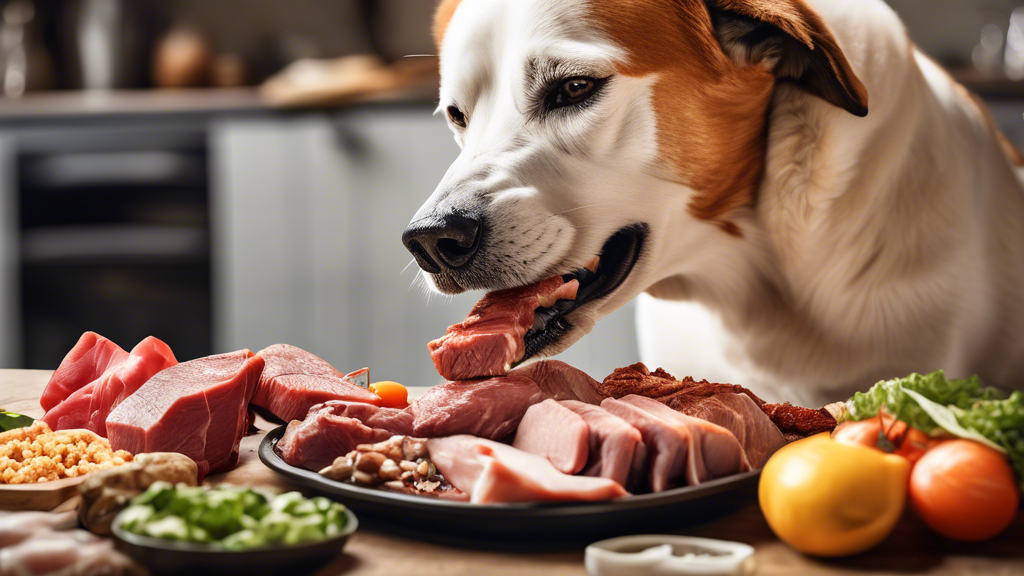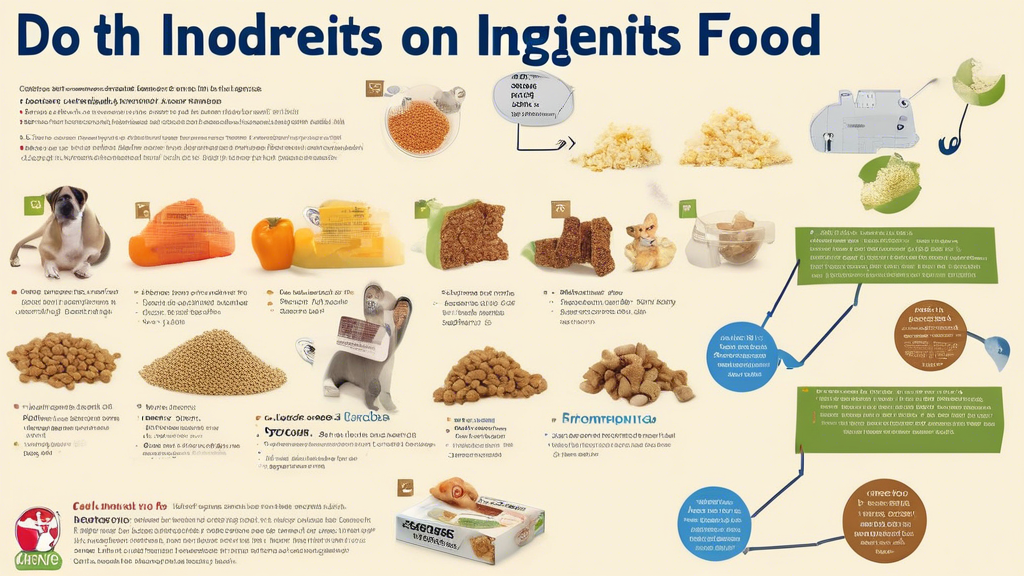**Is It Important to Choose a High Protein Dog Food?**
Protein is a fundamental nutrient for dogs, crucial for their overall health, energy levels, and well-being. As pet owners, understanding the nutritional needs of our canine companions is essential, especially when it comes to their protein intake. This article delves into the importance of choosing a high protein dog food, focusing on the nutritional requirements of dogs, the benefits and considerations of high protein diets, and guidelines for selecting the best protein-rich food for your furry friend. By providing valuable information and insights, this article aims to empower dog owners to make informed decisions about their pet’s nutrition and ensure their optimal health and vitality.
**1. Nutritional Needs of Dogs and Protein Requirements**
**The Importance of Protein**
Protein is an essential macronutrient for dogs, playing a crucial role in their overall health and energy levels. It is composed of amino acids, which are the building blocks of muscles, organs, and tissues. A sufficient intake of protein is vital for:
* Muscle growth and repair
* Bone and cartilage formation
* Energy production
* Immune system function
* Skin and coat health
**Types of Protein Sources**
Dog foods can contain protein from various sources, including:
* **Animal sources:** Meat, fish, poultry, eggs
* **Plant sources:** Soy, beans, legumes
Animal-based proteins are generally considered more digestible and provide a higher biological value, meaning they contain more of the amino acids essential for dogs.
**Varying Protein Requirements**
The amount of protein a dog requires depends on several factors, including:
* **Age:** Puppies and pregnant or nursing dogs have higher protein needs.
* **Breed:** Certain breeds, such as athletic or working dogs, may require more protein.
* **Activity level:** Dogs engaged in regular exercise or physical activity need more protein than sedentary dogs.
**Assessing Individual Needs**
To determine the optimal protein intake for your dog, consider consulting with a veterinarian. They can assess your dog’s age, breed, lifestyle, and any specific health conditions to recommend an appropriate diet.
The #1 Free Source for Pitbull & Bully Pedigrees!

Benefits and Considerations of High Protein Dog Foods
Benefits of High Protein Diets for Dogs
High protein dog foods can offer several potential benefits for your furry friend:
Increased Muscle Mass and Reduced Body Fat
Protein plays a crucial role in building and repairing muscle tissue. A high protein diet can help dogs maintain a healthy muscle mass, which is especially important for active breeds and dogs involved in sports or working activities. Additionally, a higher protein intake can lead to a reduction in body fat, contributing to a healthier weight and overall physical condition.
Improved Satiety
Protein is known for inducing a feeling of fullness or satiety. High protein dog foods can help dogs feel satisfied after eating, potentially reducing the likelihood of overeating and preventing weight gain.
Considerations when Choosing a High Protein Dog Food
While high protein dog foods may offer benefits, there are certain considerations to keep in mind:
Potential Gastrointestinal Issues
Some dogs may experience digestive issues, such as diarrhea or vomiting, when transitioning to a high protein diet. Introducing the new food gradually and monitoring your dog’s response is essential.
Kidney Stress
High protein diets may place additional stress on a dog’s kidneys. If your dog has existing kidney issues or is a senior dog, consult with your veterinarian before choosing a high protein dog food.
Selecting a High Protein Dog Food
To ensure you choose a high protein dog food that meets your dog’s specific needs, consider the following guidelines:
* Read the Ingredient List: Look for foods that list a high-quality protein source, such as chicken, beef, lamb, or fish, as the first ingredient.
* Check the Protein Percentage: Aim for a food that provides at least 25-30% protein on a dry matter basis.
* Consider Your Dog’s Age, Breed, and Activity Level: Puppies, pregnant or lactating dogs, and highly active dogs may require higher protein levels.
* Transition Gradually: When switching to a high protein food, gradually mix it with your dog’s current food over 7-10 days to minimize any digestive upset.
* Monitor Your Dog: Pay attention to your dog’s weight, energy levels, and overall health while on a high protein diet. If you notice any adverse effects, consult with your veterinarian promptly.
**Conclusion:**
In conclusion, choosing a high protein dog food is an important decision that requires careful consideration of your dog’s individual needs. While high protein diets offer potential benefits such as increased muscle mass, reduced body fat, and improved satiety, they may not be suitable for all dogs. It is crucial to consult with a veterinarian to determine the appropriate protein level for your dog based on its age, breed, activity level, and health status.
When selecting a high protein dog food, prioritize reputable brands that use high-quality protein sources. Look for foods that are tailored to your dog’s specific needs and lifestyle. Pay attention to the ingredients list and avoid foods with excessive amounts of fillers or low-quality protein sources.
Remember that a balanced diet is essential for your dog’s overall well-being. Ensure that your dog receives a diverse range of nutrients from various food sources, including protein, carbohydrates, fats, vitamins, and minerals. By choosing a high protein dog food that meets the specific requirements of your canine companion, you can support their optimal health, vitality, and longevity.













Leave A Comment